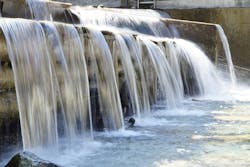Hudson Bay Company fined $765,000 for violating Canadian environmental regs
MONTREAL, DECEMBER 15, 2016 -- The effective and strict enforcement of Canadian environmental and wildlife legislation is one way Environment and Climate Change Canada (ECCC) is committed to maintaining clean air and water and to protecting wildlife and their habitats.
On December 7, 2016, the Hudson Bay Company was found guilty of six charges and was fined $765 000 for violating PCP Regulations and the Canadian Environmental Protection Act, 1999 (CEPA). The company will also have to establish an Environmental Management System, provide training on the legal consequences of violating environmental legislation to its Canadian managers, and publish an article on the facts surrounding their offences.
PCBs are toxic industrial chemical substances that have negative impacts on the health of aquatic ecosystems and the wildlife feeding off of the organisms living in these ecosystems. The Department's enforcement officers conduct inspections and investigations under CEPA. They ensure regulated organizations are in compliance with environmental legislation.
The investigation, led by ECCC, showed that the Hudson Bay Company had committed several violations to the Regulations and to the Act, namely the release of more than 146 kg of polychlorinated biphenyls (PCBs) into the environment, exceeding the permitted amount by 146 000 times; failure to notify as soon as possible of the release; failure to take all possible measures to prevent the release of the PCBs in the environment; and failure to submit to the minister, within the deadlines, the annual reports for 2008, 2009, and 2010.
The amount of the fine will be directed to ECCC's Environmental Damages Fund (EDF). As a result of this conviction, the Hudson Bay Company will be added to the Environmental Offenders Registry. The EDF, administered by ECCC, was created in 1995 to establish a system that would allocate fines received through court convictions and voluntary settlements to important projects that have a positive impact on the environment.
